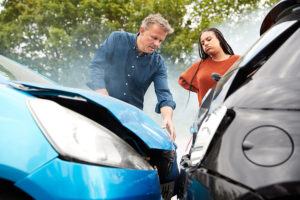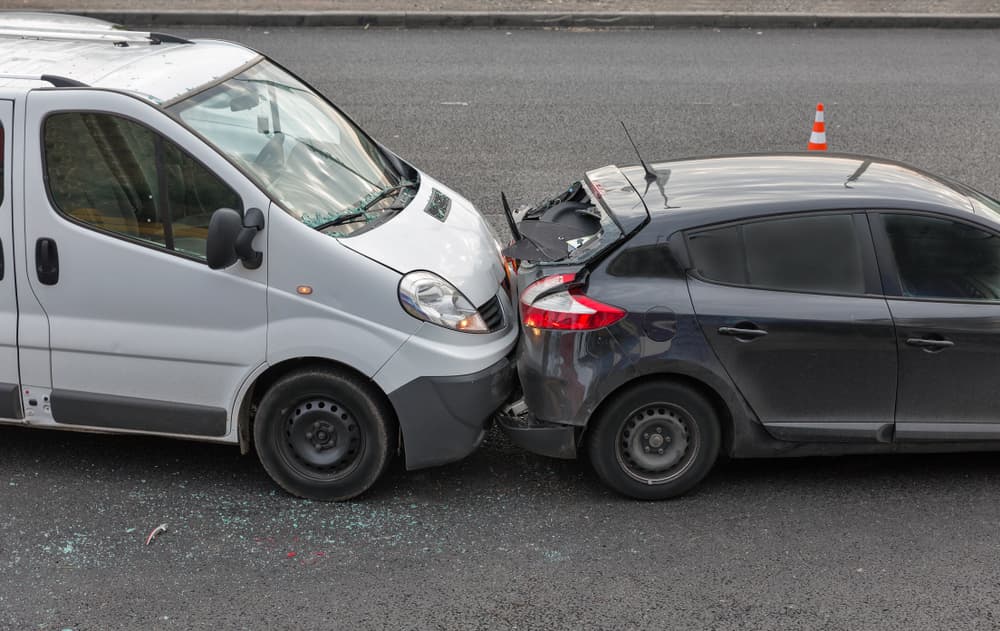9 Steps You Can Take
When you are involved in a car accident, you may not know what steps you should take to not only ensure that you are not harmed further, but also to also preserve your rights under Illinois law. First, it is important to understand how many car accidents occur on Illinois roadways. During the year for which the most recent statistics are available, 66,889 accidents occurred, resulting in 93,517 injured individuals. The more you know about protecting yourself after a car accident, the better.- Protect yourself from further injury - Assuming you can do so, remove your vehicle from traffic flow and get as far off the road as possible. If you are seriously injured, however, do not do anything that will result in exacerbating your injury or causing you additional injuries. Should there be passengers in your vehicle, make sure they are not seriously injured. Finally, check the driver and passengers in other vehicles involved.
- Notify local law enforcement officials - Immediately after you have ensured everyone is safe, you or another involved party should contact law enforcement, assuming someone has not already contacted them. You’re required by law to report any car accident resulting in property damage or injury. Keep in mind, you may also have to file an additional report with the Illinois Department of Transportation. Also, there are a few auto insurance carriers that require police be notified within a certain amount of time for coverage to apply.
- Documenting the scene of the accident - You should obtain contact information for the driver of the other vehicles involved in the accident. Ask for proof of insurance from the driver, as all Illinois drivers are required to maintain mandatory levels of insurance in the event of an accident. Obtaining the names and contact information of passengers and witnesses to the accident can also be helpful to you later. Photographs of the location of the accident, any street signs, and damage to the involved vehicles will also be helpful.
- Discussing the accident with law enforcement - Despite being frightened and stressed, you should cooperate with law enforcement at the scene of the accident. Do not accept blame for the accident, simply describe what occurred as thoroughly and clearly as possible. The calmer you can remain, the better. Do not offer any theories or speculate about how the accident occurred.
- Seek medical care if needed - As tempting as it may be to avoid seeking medical care, that would be a mistake. Victims of car accidents usually suffer some form of trauma, and that trauma can mask injuries. Go to the emergency room after a car accident to make sure your discomfort is not a serious injury. This step can help ensure that you do not have injuries not readily apparent, like internal bleeding or similar injuries, which could cause you further health problems.
- Contact an auto accident attorney - After you seek medical attention, you should seek advice from a local auto accident attorney. Whenever possible, you should do this before being contacted by the other driver’s or your own insurance carrier. Remember, you can seek advice about what you should do by requesting a free consultation. However, until you discuss your case with an attorney, and hire him or her to represent you, it’s recommended that you refrain from speaking to insurance adjusters. And once you’ve selected an attorney, typically he or she will only allow you to have very limited contact with insurance adjusters, usually just to discuss property damage, with no conversations regarding liability or injuries.
- Keep track of your progress and setbacks - It will be important for you to keep track of your physical condition while you heal from your injuries. Keeping track of changes in your physical condition, including pain, setbacks, doctor visits, and any other information that may track your overall progress. You should also have a folder or an over-sized envelope to keep your receipts for prescription medications, doctor bill payments, and other costs, including travel to and from doctor visits. Your personal injury attorney will likely want to have copies of these documents, so you should speak with him or her about that.
- Keep track of other important information - You should also keep track of other information, such as the costs associated with the repair of your vehicle, the amount of time you miss from work, and any other information that your attorney suggests you track. This could be helpful if you file a personal injury lawsuit against the party responsible for your injuries.
- Avoid signing any documents on your own - The responsible driver’s insurance company may send you documents to sign, or you may receive documents from your own insurance company. Never sign these documents without discussing them with your car accident attorney first. This is critical, because you could be forfeiting your rights under Illinois personal injury statutes.
 Under Illinois law, in most cases you generally have only two years from the date of your accident to file a lawsuit. You may not know right away the full extent of your injuries, nor will you know what impact those injuries may have on your ability to return to work to financially support your family.
Remember, most personal injury lawyers will provide a free consultation to discuss your options with you before you hire one to represent you. You want someone who will be a strong advocate and who has a proven track history of obtaining fair settlements for their clients. Naturally, every case is different, and while an attorney may have a good history, it is not always a guarantee that he or she will be successful in your case.
When you are a victim of a car accident in Illinois, you will most likely have a lot of questions that need answers, which will allow you to make good decisions for you and your family. You can get those questions answered by contacting a Chicago car accident attorney who has experience handling these types of cases. You have rights as a victim, and a lawyer can help make sure those rights are protected.
Under Illinois law, in most cases you generally have only two years from the date of your accident to file a lawsuit. You may not know right away the full extent of your injuries, nor will you know what impact those injuries may have on your ability to return to work to financially support your family.
Remember, most personal injury lawyers will provide a free consultation to discuss your options with you before you hire one to represent you. You want someone who will be a strong advocate and who has a proven track history of obtaining fair settlements for their clients. Naturally, every case is different, and while an attorney may have a good history, it is not always a guarantee that he or she will be successful in your case.
When you are a victim of a car accident in Illinois, you will most likely have a lot of questions that need answers, which will allow you to make good decisions for you and your family. You can get those questions answered by contacting a Chicago car accident attorney who has experience handling these types of cases. You have rights as a victim, and a lawyer can help make sure those rights are protected.
Abels & Annes, P.C. 100 N LaSalle St #1710 Chicago, IL 60602 (312) 924-7575



